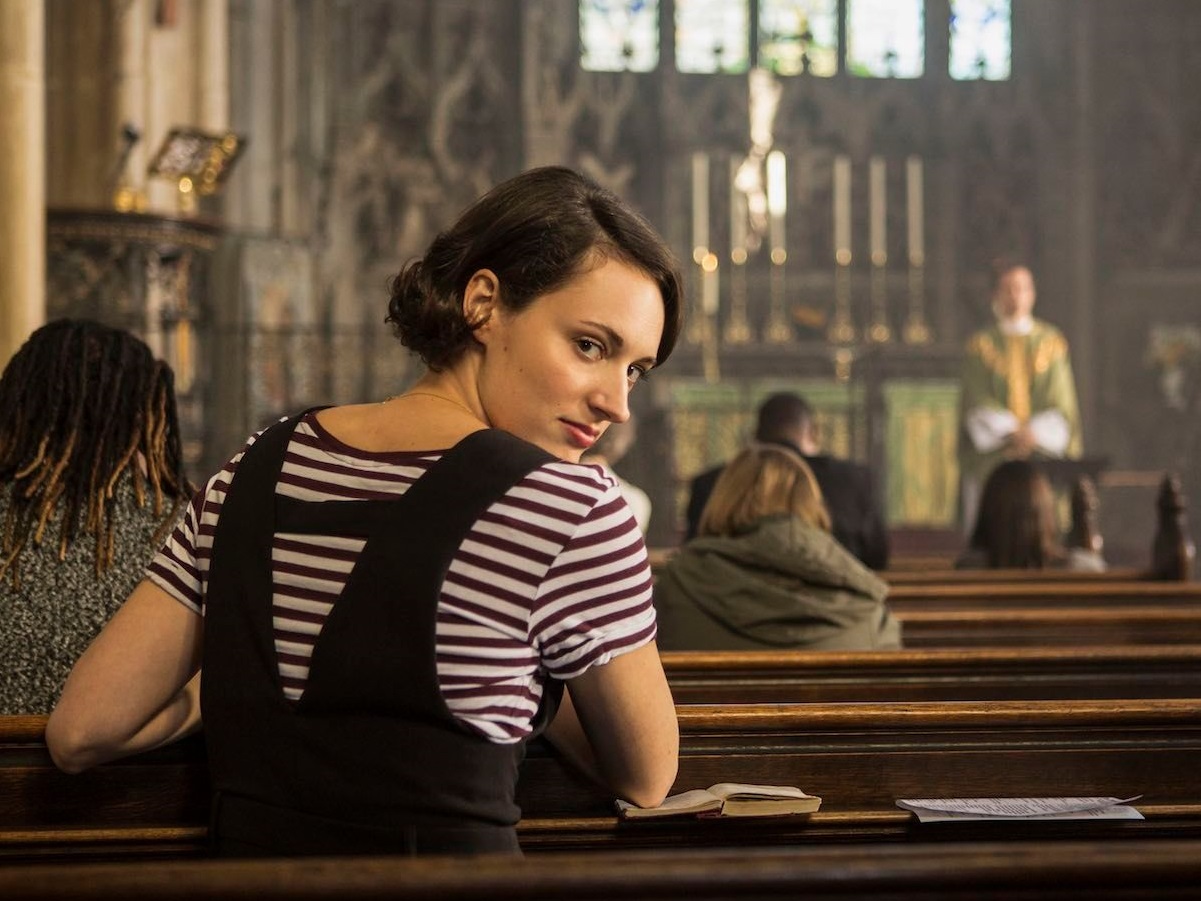With two wildly popular series already under her belt, writer Phoebe Waller-Bridge has carved out a cozy spot for her name in television. “Fleabag” and “Killing Eve” are characterized by a breakneck comedic pacing and flair for the humorously absurd, but Waller-Bridge rounds out her lively writing style with multidimensional characters that have nuanced motivations, which echo the complexities of real people.
From the self-destructive and hungry-for-love Fleabag, to the psychopathic yet fun assassin Villanelle, Waller-Bridge excels at one of writing’s most difficult tasks: creating despicable people and convincing audiences to love them despite — and even because of — their awfulness.
It requires a certain finesse to override the natural instincts that make us hate objectively terrible people, but Waller-Bridge manages to do so with practiced ease and sheer pleasure, and it’s because of this mastery of character that her talents have skyrocketed her to success.
In BBC America’s “Killing Eve,” Waller-Bridge takes author Luke Jennings’ assassin, hired and trained by The Twelve, an elite cadre of the world’s rich and powerful who seek to influence global markets through targeted murders, and makes her as relatable and likable as any feisty, smart-talking girl next door. While she can be brutal and terrifying when she feels like it, Villanelle, played by Jodie Comer, typically exudes humor and fun.
With her dry, dark and cynical take on everyday life and people, as well as her childlike impishness and sarcasm, she’s a hilarious person to see interacting with our familiar world in an unfamiliar way, killing people as casually as anyone conducts their day job and expressing complaints and impulses that most people agree with but are generally considered too impolite to voice.
https://www.instagram.com/p/ByAlPEWhVDF/
Her wit and relatability make her quite likable, despite the fact she, you know, regularly and violently kills human beings and relishes in their suffering. Suddenly, you catch yourself cheering as she calls out a bully for his pitiful need to drag others down, completely forgetting that she ruthlessly snapped the neck of a recently orphaned child earlier this season. Because she makes viewers laugh and expresses their darkest thoughts, Villanelle seems to get a pass on just about all of her evilness, and that’s what makes her so dangerous.
Waller-Bridge has created the perfect villain, one so disarming that you forget she’s bad. She even helps MI6 on a mission this latest season, retrieving vital information from another hired killer. From Eve’s and fans’ obsessions with Villanelle, it’s clear the writer has spawned an icon.
Waller-Bridge again dabbles in the antihero trope in another series, “Fleabag,” which also recently premiered its second season, streaming now on Prime Video. Main character Fleabag, played by Waller-Bridge herself, is presented as a deeply flawed individual with unhealthy coping mechanisms, a toxic obsession with sex and a penchant for ruining every relationship she has, familial and otherwise.
The show’s perspective is interesting; Fleabag acts as the first-person narrator of her own story, often breaking the fourth wall and addressing the camera to remark on her current situation. This structure reveals just how much of a fleabag the character really is, spotlighting how she gets off on mean and inconsiderate jokes and exploiting people’s attraction to her, how little she thinks of others and her apparent determination to make bad choices. However, it also showcases how desperately she wishes she could be a better person, to have friends and someone to love her, and just how fiercely she cares about the few people who are in her life.
The vulnerability and honesty she expresses through this narration transform Fleabag into someone we can all recognize and respect: somebody imperfect who is trying to improve themselves. Like Villanelle, Fleabag’s impossibly dry wit serves to distract viewers from some of the ghastlier things she does, and her struggle to find happiness makes us forgive her. Waller-Bridge skillfully portrays a toxic person coming to grips with her unhealthy treatment of others that showcases an optimistic message about people’s abilities to change.
Waller-Bridge succeeds at crafting awful but lovable characters, not only through humor and relatability, but also by employing what we’ll call the theory of the relativity of a—holes. In short, she incorporates one-dimensional, easy-to-hate characters for the audience to despise while retaining love for the more complex a—hole, who is the real star of the show.
In the latest season of “Killing Eve,” Villanelle’s cruel, humorless new handler Raymond is this outlet, with few, if any, evidently redeeming qualities. And in “Fleabag,” the wicked godmother/stepmother, played by Olivia Coleman, gleefully torments Fleabag and her sister and makes you want to bash her face in just as much as Fleabag does. In relation to these a—holes, Fleabag and Villanelle can seem like angels, making you sympathize more with them in general.
It’s through these morally grey characters that Waller-Bridge tricks viewers into reflecting upon their personal perceptions of good and bad and who you like or dislike. Villanelle’s confusing likability is meant to unsettle you, and it should, because in reality she’s quite horrendous. But she’s funny, in a mean, immature way, and when you think about it, how many funny people in your life are actually just a—holes?
On the other hand, Fleabag might curb your judgment of people for the worst things they’ve ever done — would you want your worst thing to define you forever? Her stunning imperfection reminds viewers that they aren’t perfect, either, while assuring them they don’t have to be.
Sometimes, it’s enough to just try, even if you aren’t thriving. Maybe these characters can make us more forgiving, because there is more to a person than their faults, anyway. Whatever the moral of her stories, Waller-Bridge continues to push boundaries in character development and remains a writer to keep a close eye on.
















